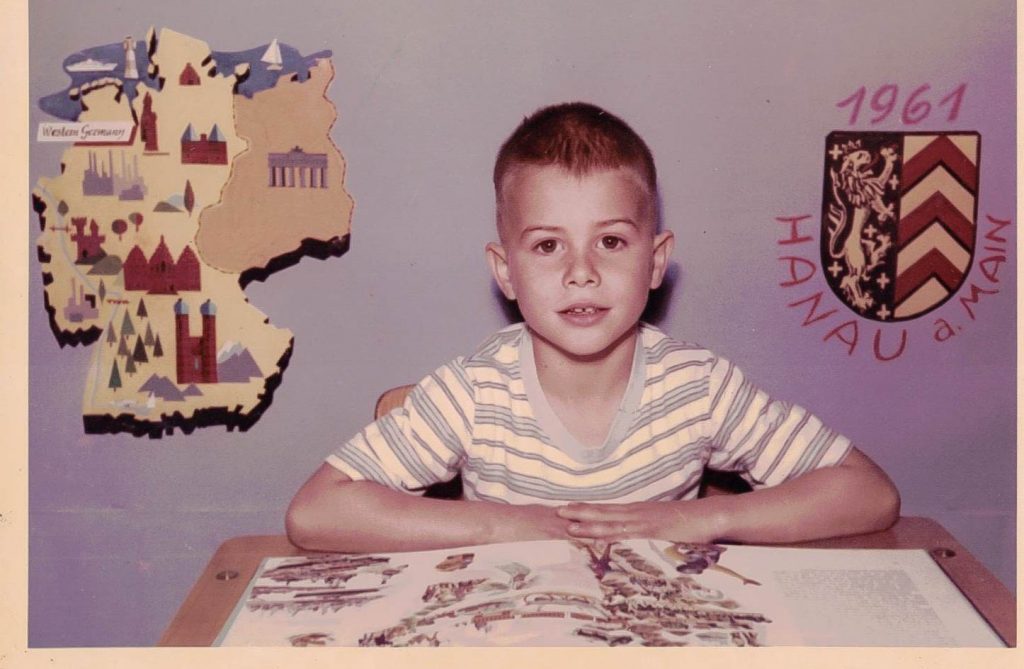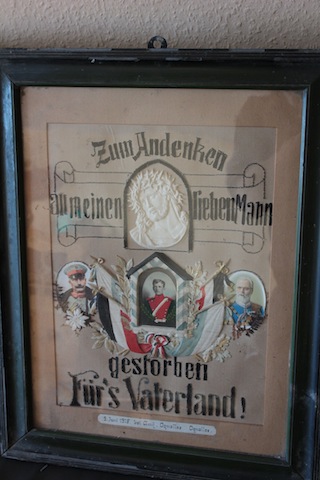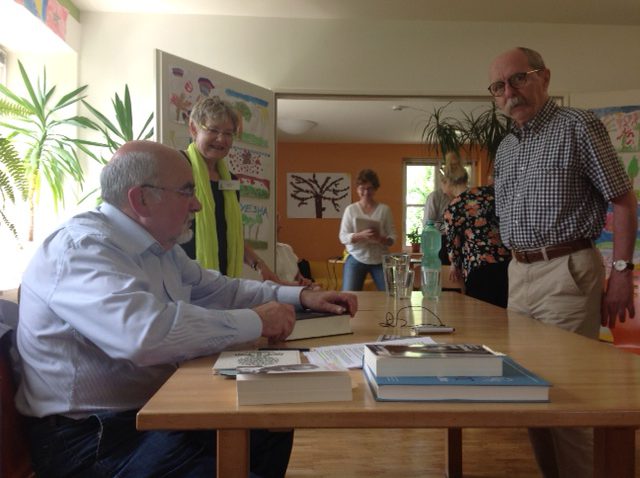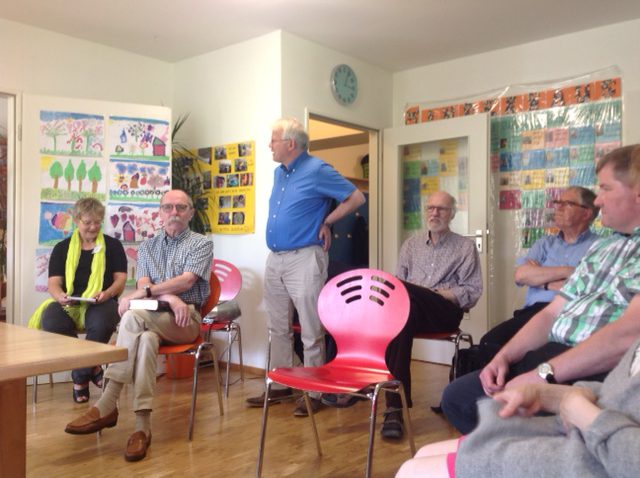A friend of mine, David K., shared his childhood experience of living in Langendiebach, Germany, in the early 1960s.
When we first came to Germany, I think it was December, 1959, the Army had no place to house us. We were taken by Army truck far out in the country to a little apartment on a German farm. It was a working farm that raised mostly chickens.
We lived in the part of the farmhouse that was built in the 15th century. It was made of stone with two foot thick walls and uneven stone floors. It was heated by coal and it had minimal electricity. We were there six months through the winter and my father was gone most of the time.
My mother would put the two younger kids on a sled and we would walk into town for groceries – the butcher shop, the baker etc. Finally, we were able to move to a larger town – Langendiebach – which was next to the air base where my father worked. The air base was called Fliegerhorst and it was originally a Wehrmacht airfield.
In Langendiebach we lived in an apartment that was originally a small factory. My friend Helge and his family lived down the street. His mother, Rosemary, was the propane dealer for the town and she would hand deliver large bottles of gas that we used for cooking. His father, Wilhelm (Willy) was a carpenter and they lived in a very old stone house that had no plumbing. Their house had the barn area under their living area.
We became friends with several families in town. After all, we were probably one of only a very few Americans living there. Almost all of the older men had served in the Wehrmacht and they did not easily warm up to Americans. Despite that, we made a lot of friends and my parents and Helge’s parents became pretty good friends. Willy once told my dad that he always wanted to ride in a helicopter, so my father gave Willy one of his flight suits and took him for a ride. Helge, and his brother Rudiger were close to my age and we often played together. Most of the people in town had little garden houses nearby and we would often spend weekend days at the my friend’s garden house.
Just up the street from us (all roads in town were dirt roads) lived Katie and Herr Bach. They were a little older than my folks and they never had kids. Herr Bach was a successful insurance agent and a master hunter (Jägermeister). Their house was full of stuffed animals. Herr Bach served in Norway in WWII but he was not really a military person. The Norwegians where he served invited him back to Norway after the war for hunting expeditions. The Bachs were truly nice people. They loved me and my brother and sister. My parents would leave us with them when they wanted to go away on a short vacation.
As a side note, President Kennedy came to Fliegerhorst in June of 1963 and I saw him there from about twenty feet away.
The storyteller sits for his first grade photo at Hanau Elementary School. The map on the left, now a relic from the Cold War, shows the divided Germany.
That was all during our first tour to Germany. We went back to the USA in late 1963 and my father went immediately to Vietnam. Three years later we returned to Germany for our second tour and that is when we went to Camp King and then to Edwards Housing area.












